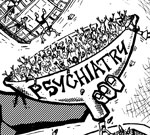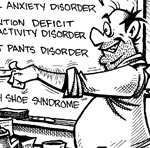The Possible Side Effects of Lecithin Supplements
| Share on Facebook | Share on Twitter | Share on Google+ |
Many people take lecithin supplements due to the popularity of the benefits they provide, without regard and knowledge of possible lecithin side effects. Lecithin is a lipid material composed of both choline and inositol which is actually present in our cells as a major component that facilitates the flow of nutrients going in and out of the cell. Many lecithin supplements have been produced commercially from Soya and will thus be referred hereon as soy lecithin or Soya lecithin.
Natural sources of lecithin include foods such as soybean, egg yolk, wheat germ, legumes, yeast, peanuts and wheat germ, among others. Lecithin supplements in the form of soy lecithin are sold in the market today in powder, capsule and granular forms.
The Many Benefits of Lecithin
Soya lecithin has been found to be effective in various food and industrial applications due to its emulsifying properties. Its application includes promoting solidity in margarine, giving consistent texture to creams and dressings, coatings for chocolates, cosmetic uses in shampoos, and several industrial uses such as in the production of paints, waxes and textiles.
Recently, Soya lecithin has also been seen to have a multitude of health benefits. This comes from the fact that lecithin can prevent the build-up of fats in the body so that they can be broken down easily and used as a source of energy.
Lecithin has been popularly promoted for lowering cholesterol, for improving brain function and memory, keeping the liver healthy and promoting weight loss. There have also been claims that lecithin supplements can promote relief of arthritis, healthy skin and hair, treatment for gallstones, reproductive health and development, as well as improved physical performance and muscle endurance. The latter benefit claims have yet been scientifically proven, however.
Lecithin Side Effects
Though no visible side effects can be felt when taking dosages below 10 to 30 grams of soy lecithin, higher doses have been seen to cause various problems and side effects which include gastrointestinal problems, diarrhea, either weight gain or loss of appetite, rashes, headache, nausea, dizziness, vomiting and unpleasant body odor and bad breath. On the other hand, regular chronic doses of choline over 3.5 grams daily have been seen to cause the occurrence of low blood pressures in a few people. Low blood pressure signs usually include dizziness, confusion, blurred vision and even fainting.
The Problem with Soy Lecithin
More and more people have been using soy supplement as part of their daily food supplement. But along with this popularity comes the number of soy lecithin allergy cases reported. These allergies are caused by an oversensitive immune system such that exposure to certain allergens such as the ones found in soy lecithin, lead to a reaction that involves the release of huge amounts of antibodies. These allergic reactions include sneezing, coughing, runny nose, facial swelling, swollen tough, difficulty in swallowing, shortness of breath, excessive perspiration, low blood pressure, anaphylactic shock, fainting or even death. So, before consuming soy lecithin supplements of any form, make sure that you check to see if you are allergic to them in the first place or not.
Before taking them as food supplements, it is very important to be well-informed about possible lecithin side effects.
-
Skin CareMen Skin Care
-
Free ResourcesFree eBooks
-
The physician should not treat the disease but the patient who is suffering from it.Maimonides
-
Featured Health SupplementTotal Balance is like no other
 … in that it utilizes state of the art delivery systems not generally used in a supplement...
… in that it utilizes state of the art delivery systems not generally used in a supplement...
-



















